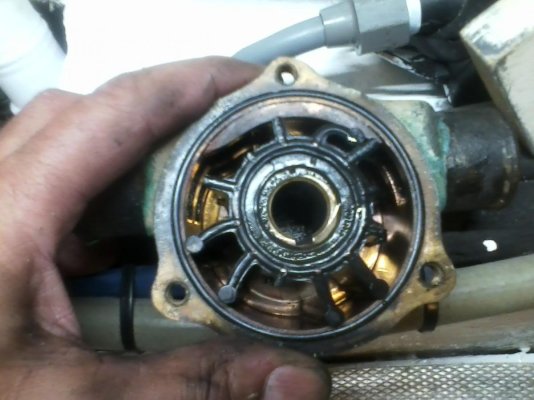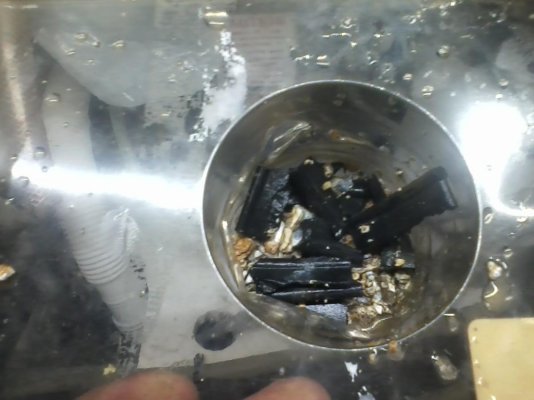- Joined
- Oct 1, 2007
- Messages
- 7,331
- Location
- Texas
- Vessel Name
- Floatsome & Jetsome
- Vessel Make
- Meridian 411
For those that don't know and have after cooled Cummins engines, the after coolers are the life and death of those engines. They should be serviced at least once every forum years and some would argue more often...every two years. Lets just say 2-4 years. I just bought a boat that is 12 years old with no evidence of the after coolers being serviced....also luckily, no evidence of damage caused by a failing after cooler. New ones cost in the $2500 range and times two, that can be some money. But I budgeted for worst case scenario.
The Cummins tech took them apart and while they were dirty and pretty clogged up with crap, they were structurally sound. They were able to clean them up and got them back on the boat. They are supposed to be sending pics of the job but haven't received them yet.
So a $5000 swing in my favor!!!! I am a happy dude!!!! Propellers are the next question mark. Should know the answer by tomorrow!!!
And if you own after cooled Cummins engines, do not ignorantly look away from your after coolers. If they leak, saltwater goes directly into the intake of the engine!
The Cummins tech took them apart and while they were dirty and pretty clogged up with crap, they were structurally sound. They were able to clean them up and got them back on the boat. They are supposed to be sending pics of the job but haven't received them yet.
So a $5000 swing in my favor!!!! I am a happy dude!!!! Propellers are the next question mark. Should know the answer by tomorrow!!!
And if you own after cooled Cummins engines, do not ignorantly look away from your after coolers. If they leak, saltwater goes directly into the intake of the engine!





